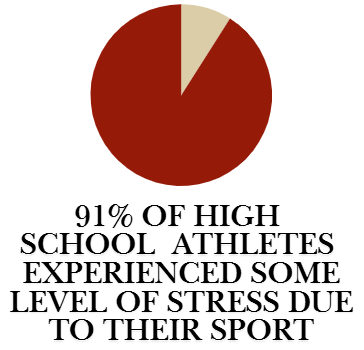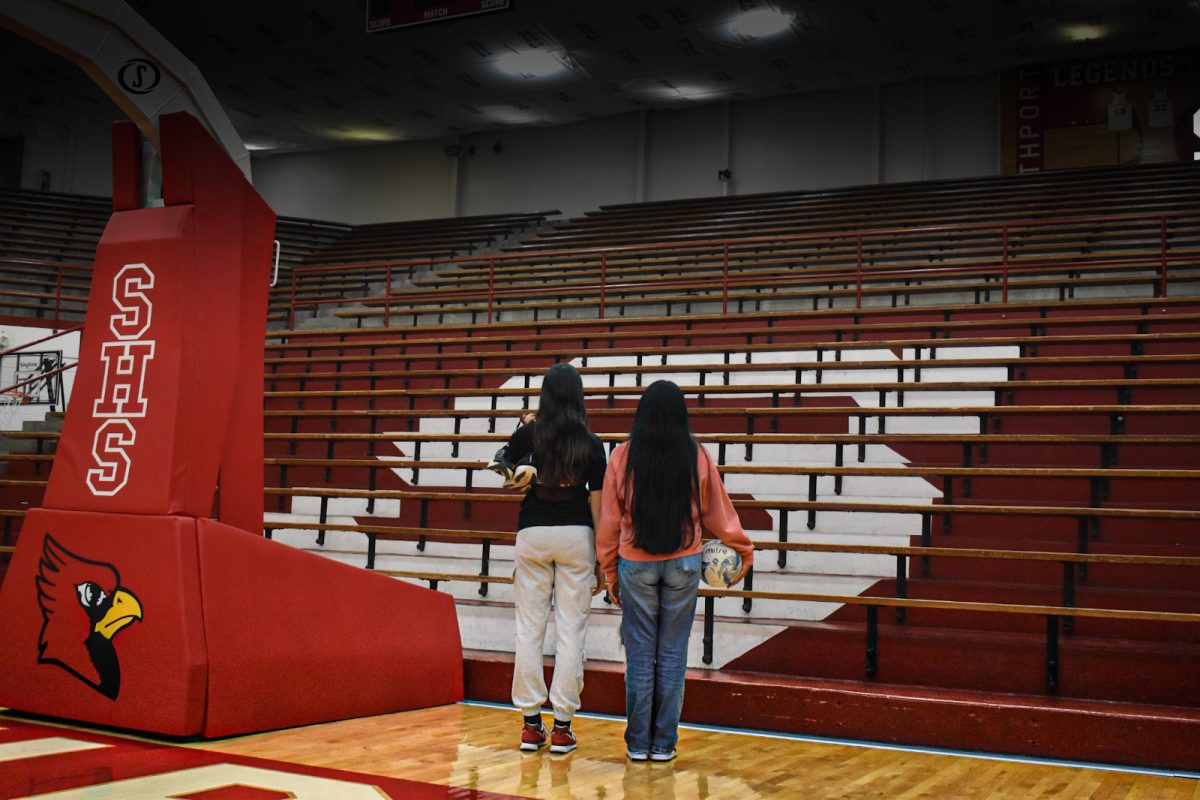Student-athletes are expected to perform every game night and leave whatever problems they may have behind before stepping on the field.
But looking past the points on a scoreboard, one thing seems to be overlooked: the mental health of a student-athlete. All are different. They play different sports, go through different experiences and have different stressors.
“Anytime someone is going through something that is impacting their mental health in a negative way, it impacts every facet of their life,” director of counseling and psychology at Purdue University Dr. Andy Walsh said.
While not all student-athletes have mental health concerns, the majority of athletes do.
91% of high school athletes experienced a level of stress as a result of their sport, according to a study from The National Library of Medicine.
Many student-athletes at SHS are experiencing mental health concerns that are often unnoticed and have minimal resources in place for them.
Sophomore Erika Torres is one example of a student-athlete who dealt with mental health concerns.
After her freshman year, Torres decided it was best to leave the sport of soccer after feeling lost. She thought taking time away from the sport was necessary to find herself again.
“I felt like I didn’t have time for myself, and I was just drained after my freshman year,” Torres said.
For Torres, one outlet she found to better her mental health was her coaches. They were a resource for Torres on the soccer field to get better every day.
“Every coach has flaws, no coach is perfect,” Torres said. “(But) they definitely helped me improve a lot.”
Junior Erin Herwehe is another student-athlete who has to juggle everything from cross country to dance and a job while still being a student in high school.
This year, the cross country team has looked a little different from past years. Herwehe says they only have eight girls, compared to previous years when they would have around 20 girls.
As a result of the lack of girls on the team, Herwehe’s coaches are expecting more out of them.
“They’re pushing us, and it affects our bodies,” Herwehe said. “It affects our physical health because we are trying harder, and then we don’t get enough sleep, and it is just a whole domino effect.”
External factors also greatly affect Herwehe and some of her teammates. Herwehe says balancing getting homework done, practicing and maintaining a social life can be stressful to manage.
While the team this year has had to overcome struggles, one way they are able to come together is from of the bond they’ve created.
“We all have that extra gratitude for each other because without us, there would be no Southport girls cross country team,” Herwehe said.
When it comes to pinpointing a reason why athletes may struggle with mental health, there isn’t one reason. It can come from a range of numerous things.
It could start from fear of failure all the way to pressure from coaches or parents, even challenges not relating to sports, like school or home life. Sometimes in serious cases, this results in eating disorders, burnout from playing sports or even depression.
At SHS, it is not something the athletic department has focused on in the past but is now being considered for the future.
“It’s definitely something that is on our radar, something we are looking into,” Athletic Director Nick Stevens said. “We don’t have a set plan or direction right now, but it is definitely something we are considering.”
Girl’s volleyball head coach Chelsea Hoffman believes mental health issues are something everyone should be educated on, not just coaches but players too.
Coaches have never been told an exact plan on how to help athletes. Hoffman explains it is more of an unspoken rule. If someone was struggling, then she would figure out a way to help them.
“It’s touched on, but I would say directly what to do or how to handle mental health as a coach (is not talked about)…” Hoffman said. “There’s not a playbook for that.”
According to Stevens, the procedure to help a struggling athlete is that if the athlete shares a problem with the coach, the coach would then tell Stevens or Assistant Athletic Director Tony Harris to contact one of the school counselors. The counselor would then reach out to the kid or family.
“Obviously, we don’t take any comment like that lightly,” Stevens said. “We wanna make sure we investigate and make sure that student is not in harm at that moment.”
Even though these athletes may be playing through complications out of their control, every game night they go out on the field and perform to the best of their abilities.
“Know why you do your sport. You don’t go out there to do your sport for the fans, or don’t do it for your coaches. You don’t do it for the colleges,” Herhewe said. “You do it for yourself because you know you enjoy the sport.”



